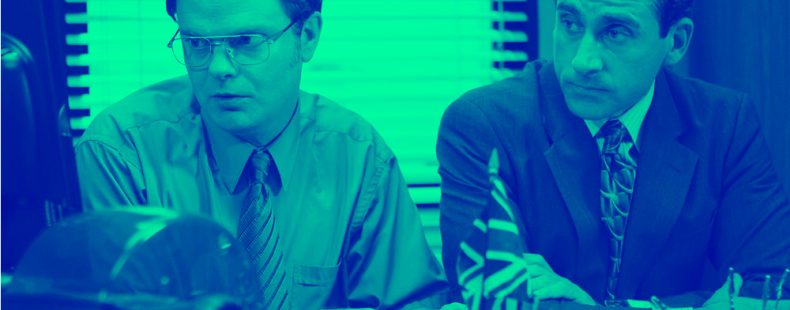It might be hard to believe that for nine years (2005–2013), many TV viewers escaped the drudgery of office life by, well, tuning into the drudgery of office life. But when your co-workers are as silly, snafu-prone, and just plain ol’ hilarious as the cast of The Office, who wouldn’t want to work overtime?
Believe it or not, The Office—which introduced us to beloved characters Michael Scott (World’s Best Boss), Pam Beesly, Dwight Shrute, and Jim Halpert—is a remake of a show with the same name that aired in the United Kingdom. What made the show so beloved was its compelling approach to chronicling mundane office life. You’re stuck with this group of people, so what’s going to happen? Over the course of nine US seasons, the answer to that is: a lot.
With a slightly schmaltzy tone and a whole lot of earnest writing, the American Office bred more than a few catchy phrases. From boss Michael Scott’s silly linguistic mix-ups to the series’ long-running jokes, these gems have become our favorite corporate jargon.
Let’s get started on this list of unforgettable gags and gaffes from The Office with one we all know.
























